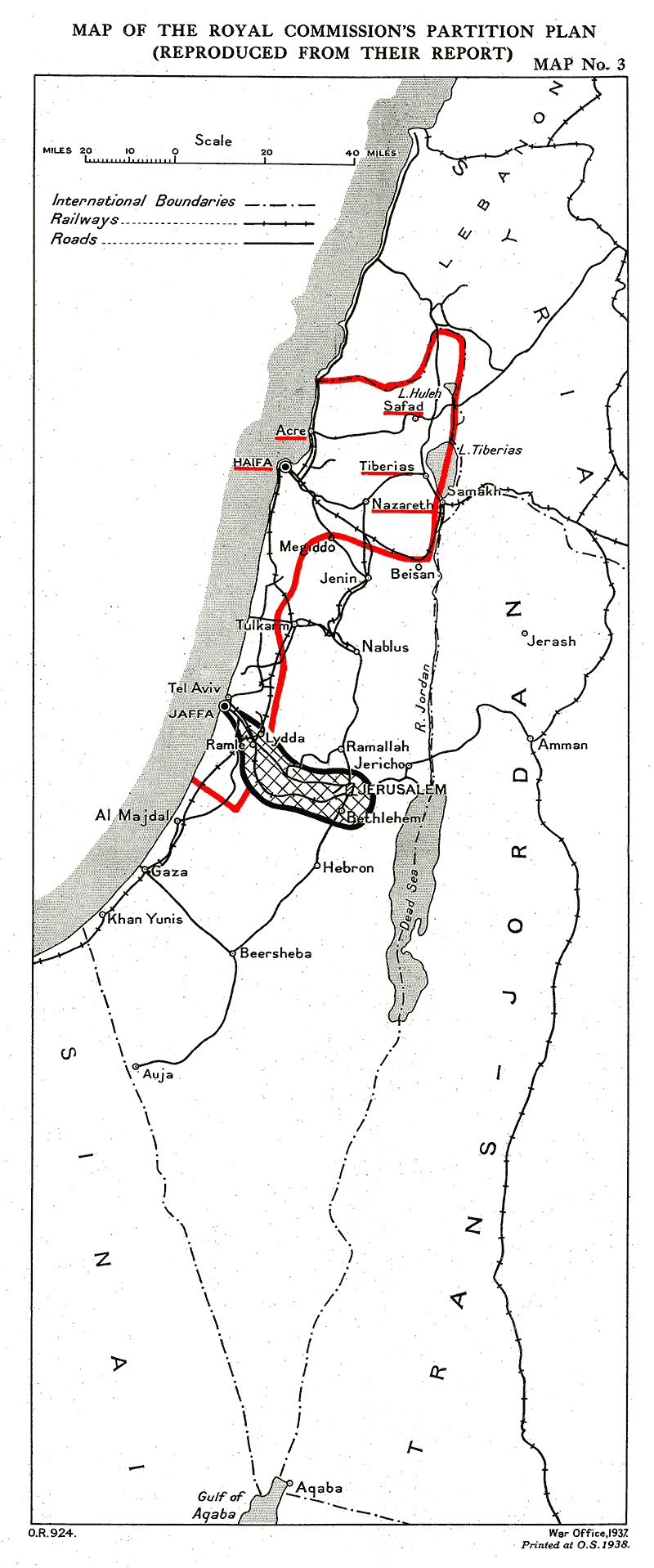
October 11, 1938
At the conclusion of a four-day conference in Cairo, Arab leaders adopt the Resolutions of the Inter-Parliamentary Congress. The conference and its resolution came in response to the Peel Commission Report of 1937, which first proposed partitioning Palestine into separate Jewish and Arab states.
The resolution declares the Arab rejection to the partition plan, stating, “Partition would create in Palestine two neighboring hostile states between which it is impossible to imagine the possibility of an exchange of inhabitants, property and holy places, such as mosques, churches and cemeteries. Furthermore, partition would deprive Arabs of their land, which constitutes the bulk of their wealth in the territory to be ceded to the Jewish State.” (Marvin Gettleman and Stuart Schaar, “The Middle East and Islamic World Reader,” New York: Grove Press, 2003, p. 183)
The resolution also rejects the legality of the Balfour Declaration and proposes a cessation of Jewish immigration while recommending “that the people of Palestine should make a sacrifice by agreeing to accept in their midst the Jews who are already in Palestine.” (Ibid)
The resolution influences the British White Paper of 1939, which did propose to restrict Jewish immigration and essentially planned to relegate the Jewish population in Palestine to a minority in a future majority-Arab state.
